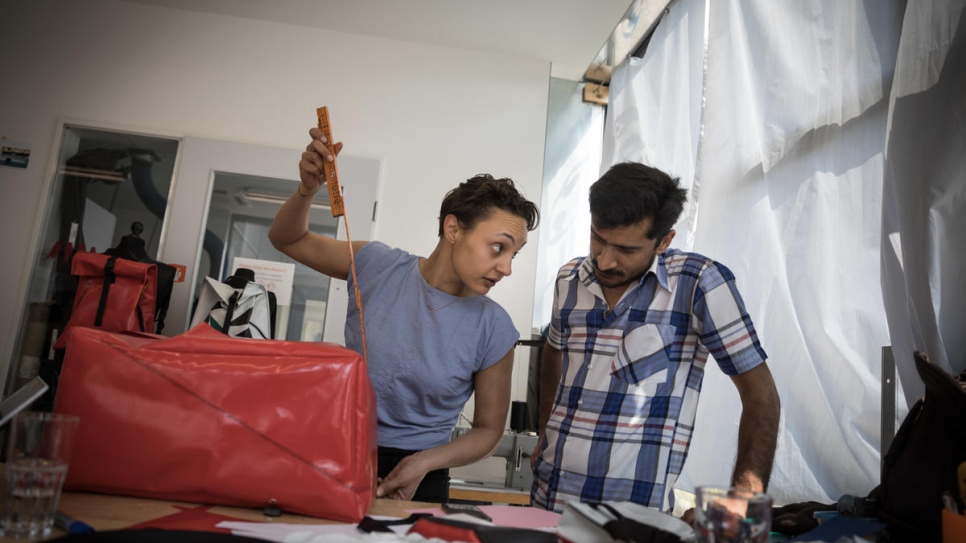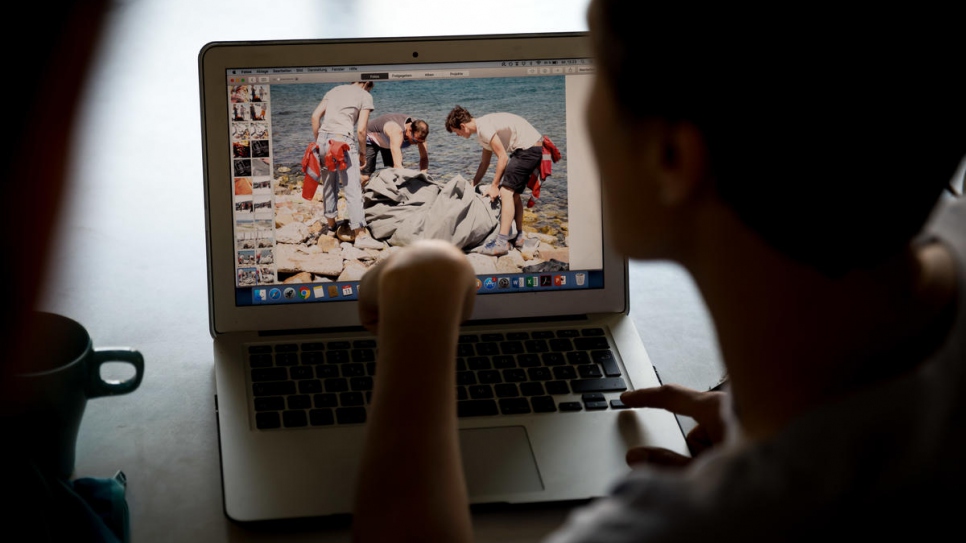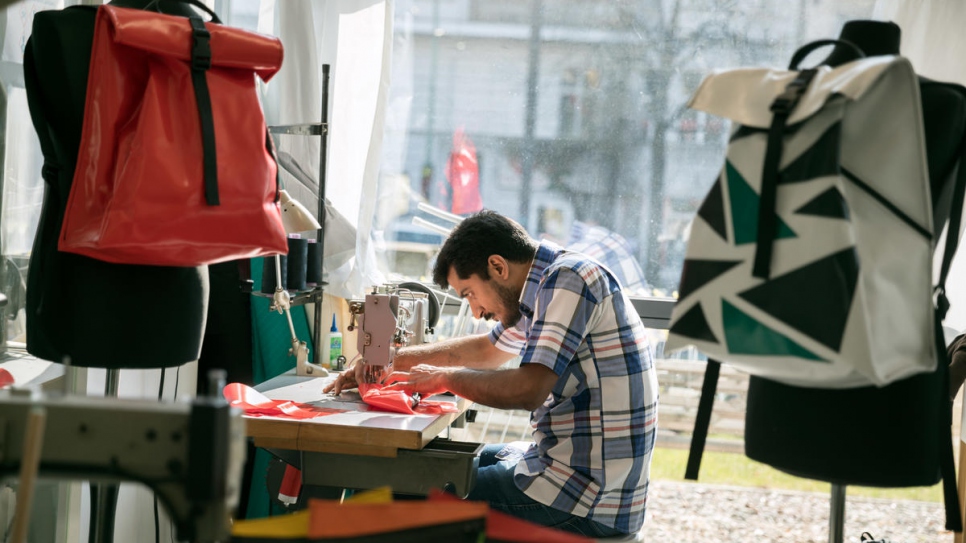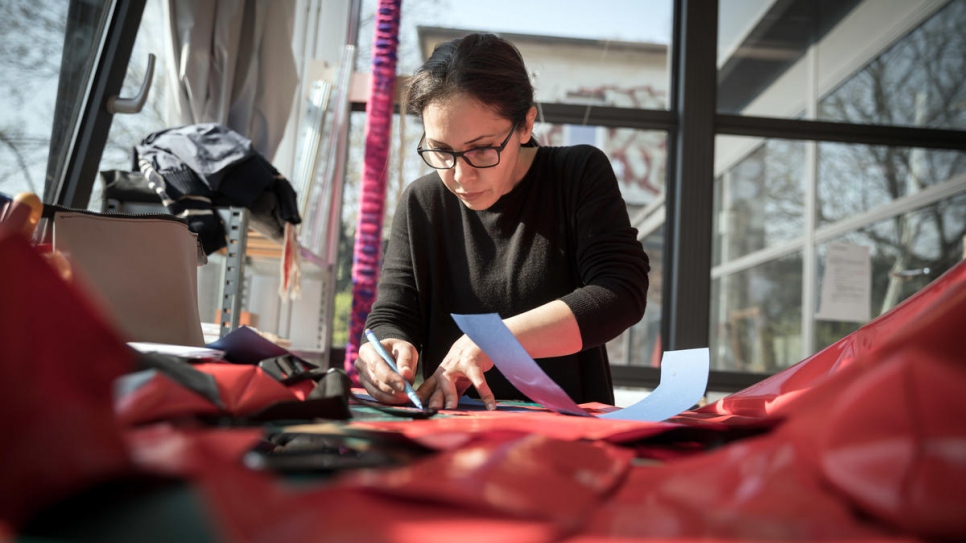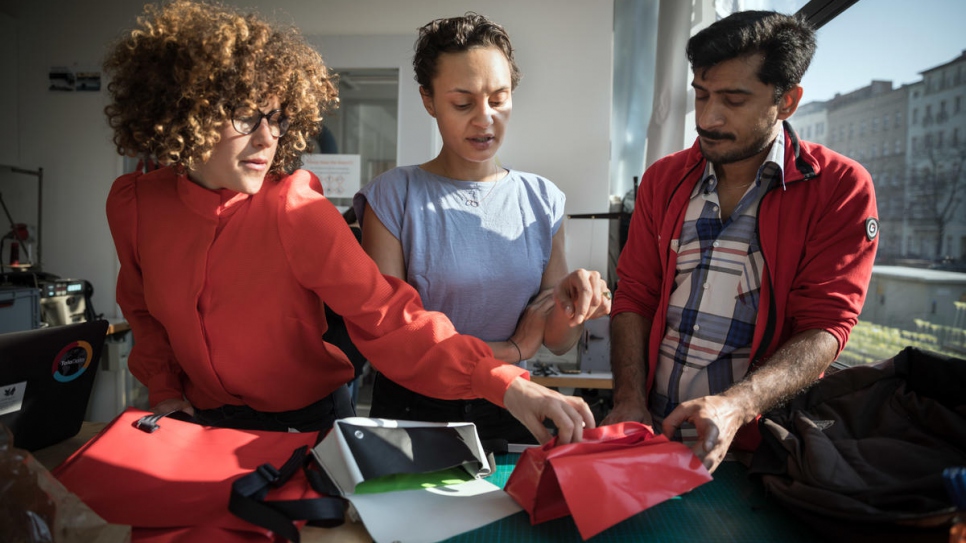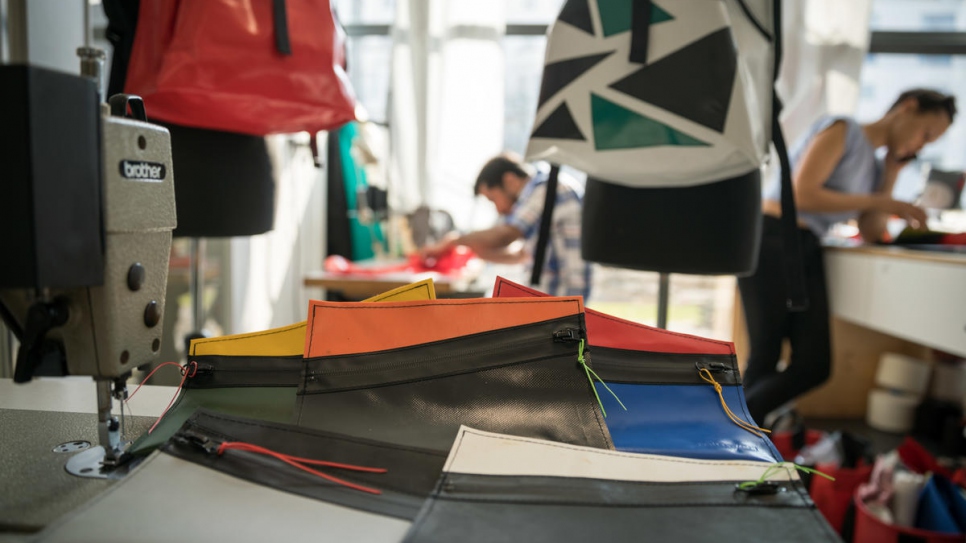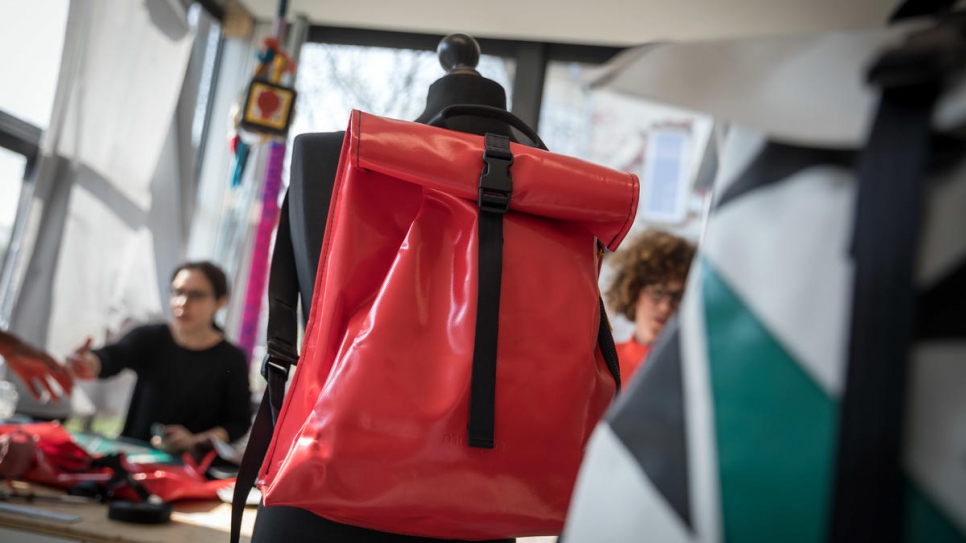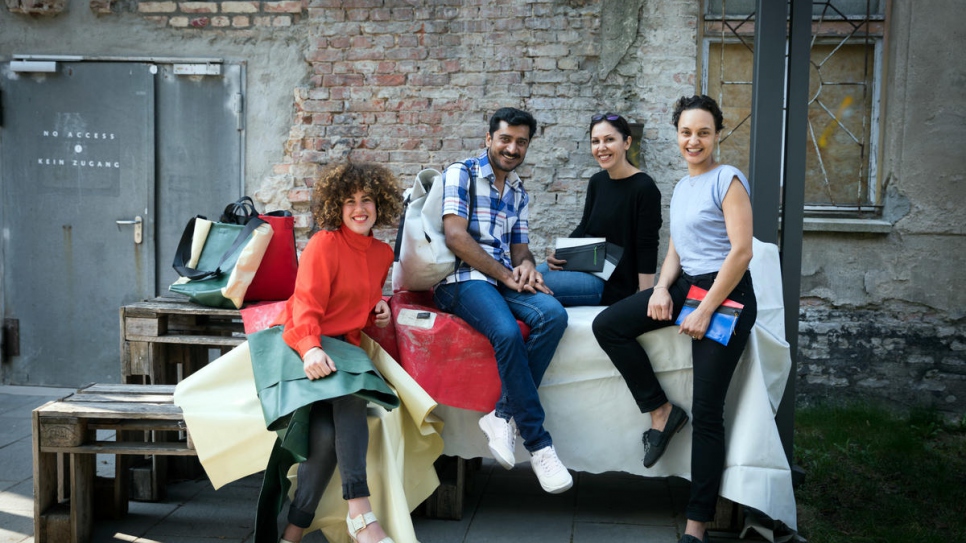The scratches and stains on the thick rubber material in the hands of tailor Abid Ali are reminders of the fabric’s traumatic past, one that he is all too familiar with.
The 35-year-old Pakistani is stitching part of a discarded dinghy used by refugees into designer bags in a Berlin workshop.
An asylum-seeker now living in Berlin, Abid boarded an overcrowded dinghy in Turkey in 2015 after fleeing danger near his home in Lahore. He was forced to steer the boat, packed with nearly 50 people, towards the Greek island of Lesvos.
“It’s a very bad memory,” says Abid, still haunted by the moment the flimsy vessel almost capsized in the wake of a larger ship. “Sometimes I think of it when I hold this material in my hand. But that’s past. I live now through this work. I am happy because I make a lot of beautiful things.”
"I live now through this work."
The non-profit organization Mimycri, which recycles the rubber into stylish bags, was founded by Nora Azzaoui and Vera Günther, who had the idea when they were volunteering to help new arrivals on the Greek island of Chios in the winter of 2015.
“They were really crazy times and a lot of boats were arriving,” says Vera, 31. “Between arrivals we were cleaning the beaches and throwing away all this material. Then we realised doing something that has an impact isn’t difficult if you just do it.”
Vera and Nora began thinking of ways to reuse the boat material that would otherwise be thrown away. Back home in Germany, they gave a discarded dinghy to a fashion designer friend who transformed it into a sturdy rucksack. It was then that they had the idea of a business employing newcomer tailors and Mimycri was born.
“We really wanted to find a way of working with newcomers, not for them,” says Vera. “To realise that here are people with amazing skills and experiences.”
The co-founders, neither of whom had any design or tailoring experience, secured funding and set about building their team. They found Abid, a lifelong tailor, after putting out a call online for skilled textile workers among Germany’s new arrivals. They immediately saw his potential and sked him to help with co-designing the products.
“Abid is an absolutely vital part of our team,” says Nora, also 31. “He’s the expert in sewing material together. We’ve really learned a lot from one another. We want to show it’s possible to integrate newcomers in the workforce and be a positive example of how that could work.”
Besides Abid, the Mimycri team includes two newcomers from Iran and Syria. Together, they transform a steady supply of old dinghies collected by volunteers clearing beaches back on Chios. The rubber is cleaned, packed and shipped to Berlin, where the team picks out the useable sections.
"We’ve really learned a lot from one another."
The dinghies’ thick black, grey and white outer rings are made into bags, while the colourful inner tubes are made into smaller products such as keychains and pouches. The results are stylish, but inevitably haunting.
“It’s a lot of responsibility to work with such historic material,” says Vera. “Every time we unpack a new boat and open it up it’s something very emotional. It already carries a story. I think the act of transforming it into something new is touching, and it’s empowering as well. We want people to change their perspective about what it was before and what it can be now. We want them to think about its history and develop an entirely new story.”
After a strong first year, Mimycri is moving into its own workspace and will soon launch a new range of products. They hope to continue to raise awareness of refugee deaths at sea and provide opportunities for those who would otherwise struggle to find employment.
For Abid, making bags from boats is the key to his new life.
“My thinking when I came to Germany was I only need to have one safe place,” he says. “Here the people are very beautiful. Now I have work, and a career. It’s a family.”

